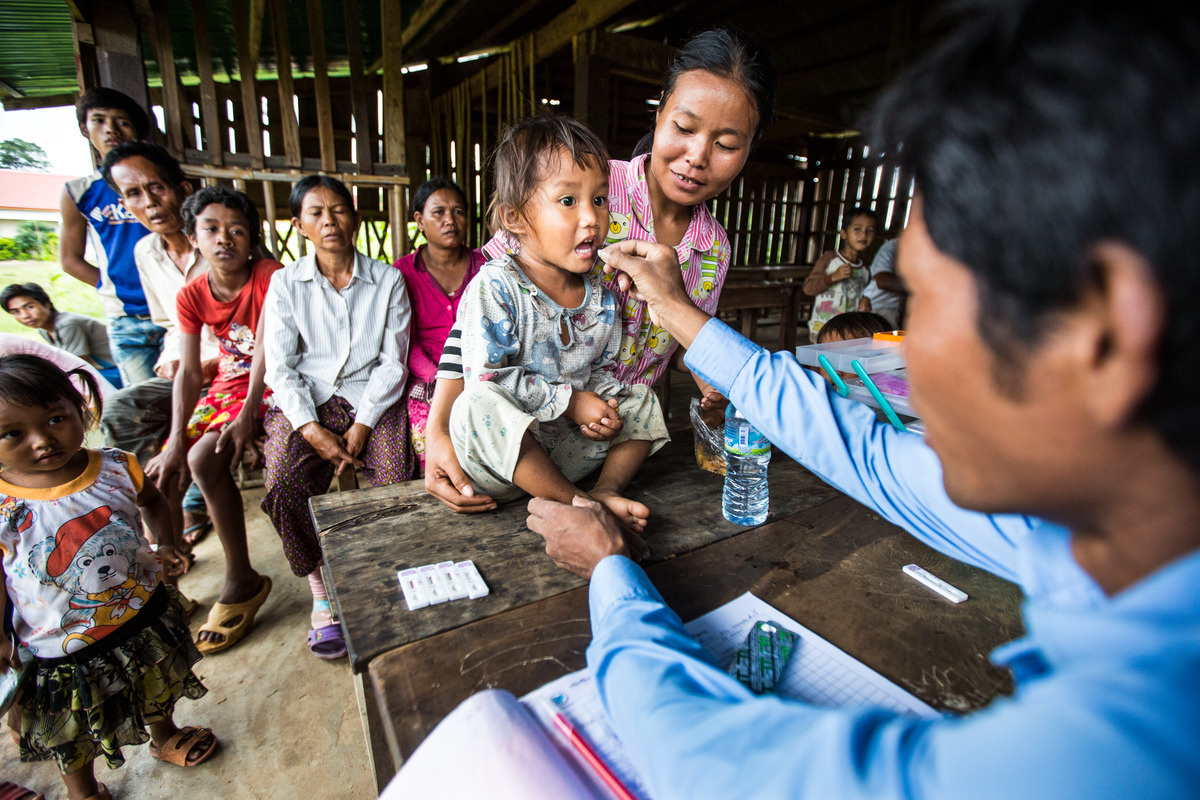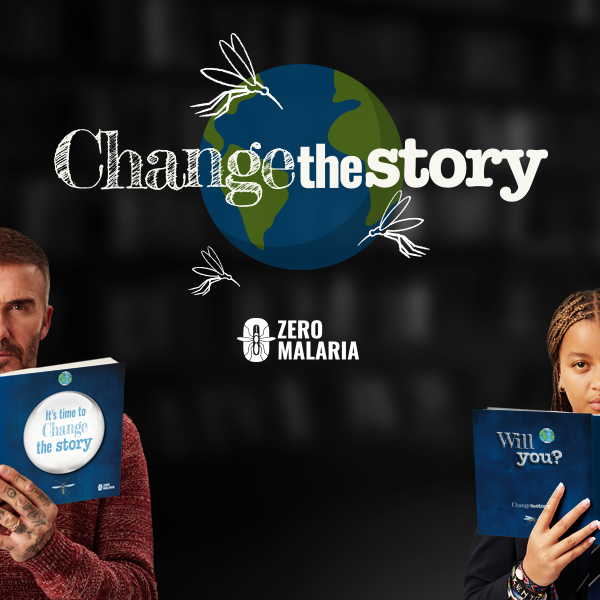- South-East Asia region on track to achieve 40% reduction in malaria cases by 2020
- India reduces cases of malaria cases by 1.2 million over past two years
- WHO World Malaria Report 2020 shows great strides towards elimination in Asia-Pacific
SINGAPORE - 30 November 2020: Today the Asia Pacific Leaders Malaria Alliance (APLMA) and the RBM Partnership to End Malaria welcome remarkable year-over-year progress achieved against malaria in South-East Asia, which puts the region on track to reducing malaria cases by 40% over five years. These achievements suggest countries have held the line in protecting historic gains against the disease despite the unprecedented challenges of the COVID-19 pandemic.
According to the World Health Organization (WHO)’s annual World Malaria Report 2020, published today, the Greater Mekong Subregion has reduced malaria cases and deaths by over 90% since 2000, despite the emerging local challenge of drug and insecticide resistance. Meanwhile, in India – the country with the highest burden of malaria outside of Africa – cases were reduced by 1.2 million over the last two years.
Furthermore, China and Malaysia have both registered zero malaria cases for three consecutive years and kept malaria at bay despite COVID-19. This puts both countries on-track to be certified malaria-free next year. Since 2000, 10 countries have been certified malaria free by WHO.
As a result, WHO’s South-East Asia region is on track to achieve a 40% reduction in malaria case incidence by 2020 – a global target set in 2016. Asia-Pacific leaders have also set 2030 as the regional target for malaria elimination.
Since 2000, the region has reduced cases of malaria by 69% and related deaths by 70%. India made a significant contribution to this achievement, reducing malaria cases from 20 million to just over 5 million in 2019.
With ongoing commitment, optimized use of current resources and new investments, the region will help deliver on the global promise of ending malaria within a generation.
Professor Yongyuth Yuthavong, RBM Partnership Board Member, malaria scientist and former Deputy Prime Minister of Thailand, commented:
“The Greater Mekong Subregion has made tremendous progress towards elimination, even in the face of growing insecticide and drug resistance, reducing malaria cases and deaths by over 90% since 2000. This achievement is in no small part thanks to the development and scale up of life-saving tools, many of which were not available 20 years ago, and cross-border collaboration that improved and increased surveillance. Today, we must continue investing in innovations that will help us stay ahead of a changing vector and parasite.”
Nonetheless, the COVID-19 pandemic and its economic fallout threatens long-term progress towards malaria elimination. The commitments and actions countries make in the next few years will therefore be crucial for getting back on track to achieve the ambitious and realistic malaria reduction targets. Notably, COVID-19 has reinforced the critical importance of timely, accurate and localized data and innovation to effectively fight infectious diseases like malaria.
This year, the global malaria community has shown unprecedented collaboration in responding to the challenges of COVID-19. Partners across the Asia Pacific region – including national malaria control programmes and global suppliers of essential malaria tools – have played a critical role in addressing supply chain disruptions of life-saving malaria interventions and personal protective equipment, resolving bottlenecks in campaign delivery, and stepping up malaria surveillance.
Dr Sarthak Das, CEO of the Asia Pacific Leaders Malaria Alliance, added:
“Consistent leadership across much of Asia Pacific amidst emerging antimalarial resistance and COVID-19 has protected hard-earned progress over the past decade. While there is much to celebrate in regard to progress, we must continue to not only support nations on the verge of elimination but also ensure that higher-burden countries like India, Indonesia and Papua New Guinea are not forgotten. These actions will sustain the momentum towards our goal of eliminating malaria in the Asia Pacific by 2030”.
Since 2000, thanks to committed global partnership, the world has made tremendous progress against malaria, saving 7.6 million lives and preventing 1.5 billion new infections. In 2019, 409,000 people died from malaria and there were 229 million malaria cases globally.
Dr Abdourahmane Diallo, CEO of the RBM Partnership to End Malaria, concludes:
“Malaria’s impact in 2020 would have been much worse if not for the incredible efforts by countries and their partners, but the reality is that every malaria death today is avoidable. We have seen how the malaria toll, especially among young children, increases during health crises. We must continue to tackle malaria and COVID together to save more lives and protect heath systems”.
- ENDS -
Contact:
For media enquiries, please contact:
Janice Apilado, Communications Manager, APLMA
Email:
japilado@aplma.org
Tel: +65 67276953
Mobile: +65 98830366
Navreet Dhillon, GCI Health
Email:
Navreet.Dhillon@gcihealth.com
Tel: +65 6671 3249
Mobile: +65 9010 1795
RBM Partnership Press Office
Email:
RBMPartnership@grayling.com
Tel: +44 (0) 20 3861 3747
Notes to editors:
About malaria
- Malaria is one of the world’s oldest and deadliest diseases. It existed since the time of the dinosaurs and some believe it has killed half the people that ever lived.
- Malaria is entirely preventable and treatable. Despite this, over 400,000 people die from it each year—most of them children under the age of five. A child still dies from malaria every two minutes.
- Half the world is still at risk from malaria, with more than 90% of the world’s malaria burden in Africa.
Key findings from the 2020 World Malaria Report
- Since 2000, global efforts have saved 7.6 million lives and prevented 1.5 billion new malaria infections.
- In 2019, global malaria deaths slightly decreased to 409,000 – the lowest ever number of malaria deaths – while malaria cases slightly increased to 229 million.
- Between 2000 and 2019, the number of countries with fewer than 100 indigenous malaria cases – a strong indicator that malaria elimination is within reach – increased from 6 to 27.
- Since 2000, 21 countries have reported zero indigenous malaria cases for three consecutive years, 10 of them have been certified malaria free by WHO.
- In the 11 highest-burden countries that accounted for 70% of the global malaria burden in 2017, deaths have fallen from 263,000 in 2018 to 226,000 in 2019, while cases increased slightly from 155 million to 156 million in the same period.
- WHO’s South-East Asia region is on track to achieve a 40% reduction in malaria case incidence by 2020 – a global target set in 2016 – largely thanks to remarkable year-over-year progress in India and in the Greater Mekong Subregion.
- The Greater Mekong Subregion has reduced malaria cases and deaths by over 90% since 2000.
- India reduced malaria cases by 1.2 million over the last two years.
More information about the 2020 World Malaria Report is available from:
https://who.canto.global/v/MalariaReport2020/landing?viewIndex=1
Malaria efforts in the face of COVID-19
- In April, a modelling analysis by WHO and partners predicted that malaria deaths in sub-Saharan Africa could double this year alone – to rates last seen almost two decades ago – if access to life-saving insecticide-treated nets and antimalarial treatment was severely curtailed.
- In response, the RBM Partnership issued an urgent call to action urging countries to continue, safely, malaria prevention campaigns planned for 2020.
- Thanks to countries’ leadership, over 90% of campaigns are on track across 28 nations that had planned them for 2020.
- Over 200 million mosquito nets are on schedule to be distributed, and some 20 million children have been protected with seasonal malaria chemoprevention (SMC) this year.
For more resources about COVID-19 and malaria visit
endmalaria.org/covid19andmalaria
About the Asia Pacific Leaders Malaria Alliance (APLMA)
APLMA is an affiliation of Asia and Pacific heads of government, formed to accelerate progress against malaria and to eliminate it in the region by 2030. APLMA was created by the East Asian Summit (EAS) leaders in 2013 to further strengthen anti-malaria efforts, both to help protect hard-won national gains and, ultimately, to defeat malaria in the region altogether.
To guide this work, the Asia Pacific Leaders’ Elimination Roadmap sets out the strategic priorities for achieving the 2030 goal.
About the RBM Partnership to End Malaria
The RBM Partnership to End Malaria is the largest global platform for coordinated action against malaria. Originally established as Roll Back Malaria (RBM) Partnership in 1998, it mobilises for action and resources and forges consensus among partners. The Partnership is comprised of more than 500 partners, including malaria endemic countries, their bilateral and multilateral development partners, the private sector, nongovernmental and community-based organisations, foundations, and research and academic institutions. The RBM Partnership Secretariat is hosted by the United Nations Office for Project Services (UNOPS) in Geneva, Switzerland.
endmalaria.org
Facebook:
@RBMPartnership
Twitter:
@endmalaria
